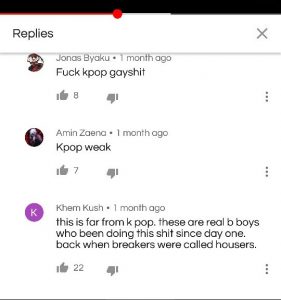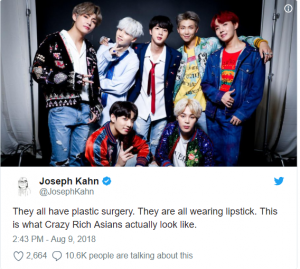The outstanding success of Crazy Rich Asians highlights the power of cinema to dismantle long-held stereotypes about Asians through relatable narratives in a way that music like K-pop has failed to do. So keep the singers, we need actors to crossover.
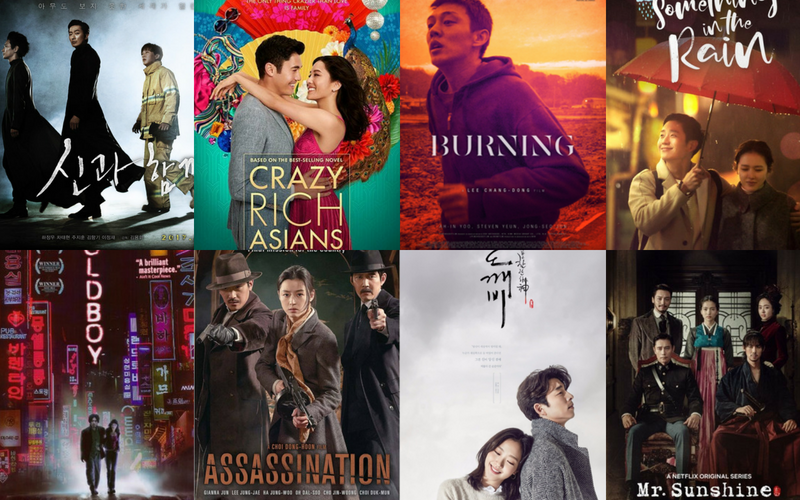
It has been 25 years since The Joy Luck Club poignantly weaved together the stories of Chinese-Americans that spanned different generations. The quarter century that separates The Joy Luck Club and the newly released romantic-comedy Crazy Rich Asians is one of the reasons why the film is generating buzz.
In particular, in the current social-political infused environment that has blossomed in Hollywood where calls for more inclusionary and accurate representations of varied ethnicities, cultures, genders, and sexual orientations are increasing in volume, many are asking why it has taken so long for another majority-Asian movie to be made.
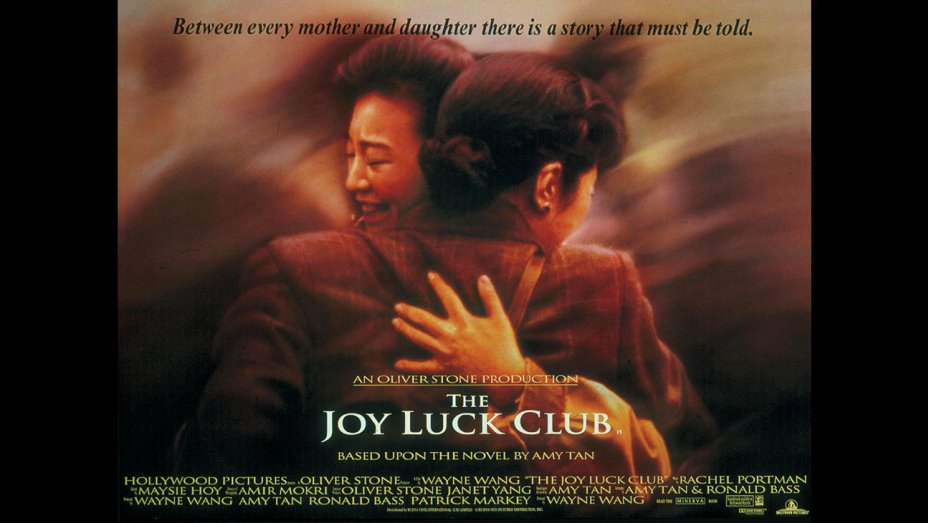
Of course, there are other reasons why the film has topped the U.S. box office. It is enjoyable, entertaining, well made, and contains a love story that while fantastical, is also approachable and relatable to the public at large. The significance of the film is related to why we watch movies.
Movies and scripted series are a form of immersive entertainment where moviegoers can suspend reality to enjoy supernatural characters and places. Moreover, films also have the amazing ability to place viewers in situations and adopt perspectives of people who are different from ourselves. In doing so we empathize with these on-screen characters growing angry when they are wronged, squeamish and embarrassed in awkward situations, and fearful when they are in danger.
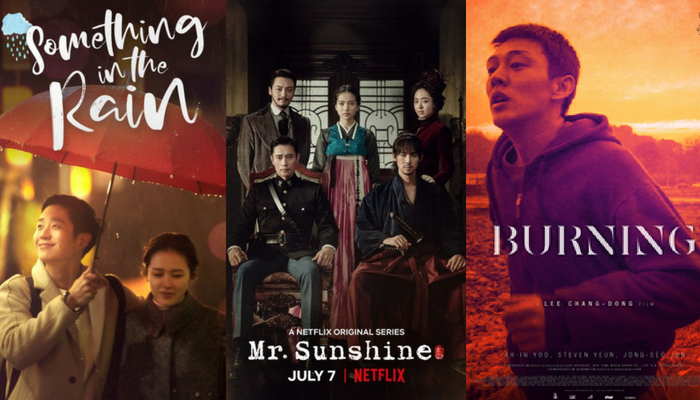
Having a majority-Asian film that covers love, family, class, and culture provide a much-needed narrative that not only Asia-Americans felt reflected their experiences, but also offered a lens that others could use to see and understand those experiences as well. What does it mean when millions in the U.S. and around the world have access to stories like the one in Crazy Rich Asians? What happens when people see dynamic relationships, emotions, and lives of the characters in the film? Answer: it changes minds.
Those who have kept up with the fantastic content flowing out of Hong Kong, Korea, India, and other places in Asia are well aware of, and used to, various narratives of Asians. The U.S. at large is not. It has been 25 years since The Joy Luck Club. In the span before and since the nominal film was released, the vast majority of Asian (or Asian inspired) films that found their way into theaters where set sometime in the past and usually included some form of martial art or heavily relied on action to engage western audiences.
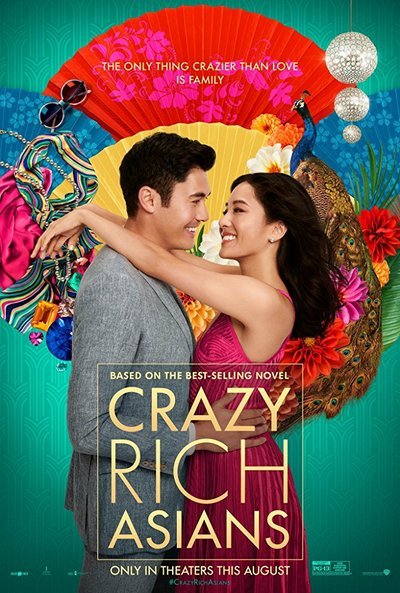
The difference is the modernity of Crazy Rich Asians, which can be seen in its characters. Rachel Chu (Constance Wu), is smart, bold, and a professor of economics and game theory at New York University. Likewise, in conjunction with hunky lead Nicholas Young (Henry Golding), they are flipping the script on long-held stereotypes of Asians in the U.S. like being quiet, passive, and both men and women viewed as very feminine.
Now some may argue that the influx of K-pop into the western mainstream entertainment has also played a part in changing these stereotypes. Sure, groups like BTS and GOT7 are making considerable moves in the U.S., but the music is not groundbreaking (K-pop is based on music style founded in the west after all); the majority of songs’ lyrics are in a different language making them unapproachable to some, usually feeds into stereotypes, and ideas attached to the image of K-pop still persist.
I don’t mean to dismiss music in any way — it is universal after all. However, in addition to musical artists crossing over to western popular culture, it would be great to see actors like Gong Yoo, Gong Hyo-jin, Lee Byung-hun (already has to a certain extent), Jun Ji-hyun, Yoo In-ah, Jo In-sung, and so many more appear in works like Bae Doona has managed to do.
These actors have taken on many different roles that are highly complex and posses a depth of character that needs to be seen. In combination with Asian-American rising stars, I want other actors to crossover and continue to break antiquated ideas and narrative of what it means to be Asian today.
By O.C
FOLLOW US ON FACEBOOK
Disclaimer: The opinions or views contained in this article may not represent the opinions or views of Kpoplove, The Korea Daily, its employees, agents or affiliates.



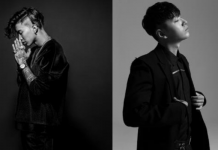

![[TEASER] Taeyeon Releases Video Teaser for Her Single ‘Four Seasons’](https://kpoplove.koreadaily.com/wp-content/uploads/2019/03/maxresdefault-14-218x150.jpg)
![[M/V] Baek Yerin Ends 2-Year Hiatus with ‘Maybe It’s Not Our Fault’](https://kpoplove.koreadaily.com/wp-content/uploads/2019/03/sddefault-2-218x150.jpg)
![[M/V] Red Velvet Yeri Releases New Song ‘Dear Diary’ on SM Station](https://kpoplove.koreadaily.com/wp-content/uploads/2019/03/maxresdefault-13-218x150.jpg)
![[HOT CLIP] Park Bom Performs ‘Spring’ Live for the First Time at Showcase](https://kpoplove.koreadaily.com/wp-content/uploads/2019/03/maxresdefault-12-218x150.jpg)




